By Maud Jullien BBC Africa,
Dakar
- 18 August 2016
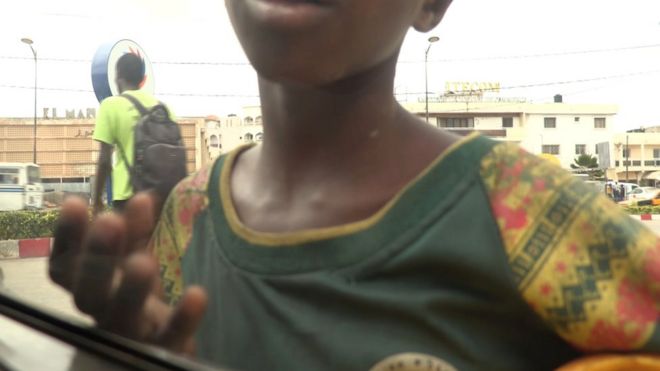 Some children have been beaten if
they do not bring back enough money to school
Some children have been beaten if
they do not bring back enough money to school
Four-year-old Ousseynou screams, struggles to
breathe and uses all his strength to try to loosen the grip of the two
plainclothes policemen who are part of a team cracking down on child beggars in
Senegal.
They drag the small boy into a
minibus - he is shoeless and wearing torn shorts and a dark blue shirt that is
at least three sizes too large.
Ousseynou is one of an
estimated 30,000 children who beg on the streets of the capital, Dakar.
"This is the emergency
phase of our operation," says Niokhobaye Diouf, the national director of
child protection.
In the past, Senegal's
authorities have been accused of complacency over tackling child begging.
But in June the president
ordered "the immediate removal of all children from the street".
Since then more than 500
children have been "extracted" from the streets by a child protection
unit.
On the bus sit another 30
boys, aged between four and 13 years old, who are being taken to a shelter.
Ousseynou will not stop
crying, saying that his marabout, or spiritual guide, is waiting for him at a
Koranic school on the outskirts of Dakar.
It is common for Senegalese
Koranic schools to send their students, known as "talibe", out to beg
for food and money.
Alioune Badara Seydi, Koranic teacher

"A child's place is not on the street, but how else can we provide for them?"
In the poor suburb of Sica
Mbao, about 75 talibe beg for food and money every morning, from between 07:00
and 10:00.
Koranic teacher Alioune Badara
Seydi argues that poverty and lack of state support leave the schools with no
other alternative.
"These children are sent
to us by parents across the country who live in extreme poverty, but who want
their children to learn the Koran," he says.
"A child's place is not
on the street, but how else can we provide for them?"
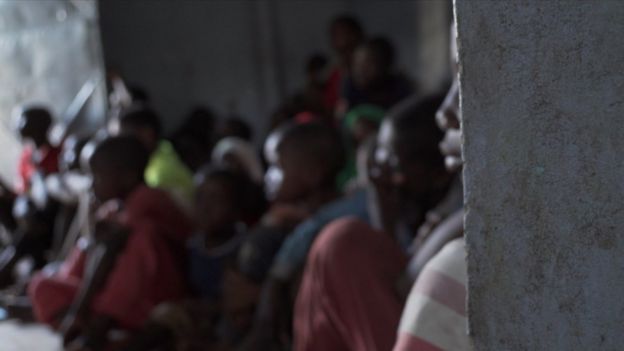
Some marabouts believe that
begging teaches humility
He goes on to explain that the
religious education they provide is valuable and begging teaches humility as
well as reinforcing solidarity within a community.
"Many of the children
that have been educated in this Daara [Koranic school] became important
marabouts," he says.
When most of Senegal's
population lived in villages, begging seldom led to exploitation, and did not
expose the children to the hardships of a big city's streets.
Beatings and abuse
In Dakar - which has a
population of more than a million people - it is a different story.
Children have reported being
beaten if they fail to earn the sums demanded by marabouts, which can range
from between 350 CFA ($0.50, £.049) and 500 CFA.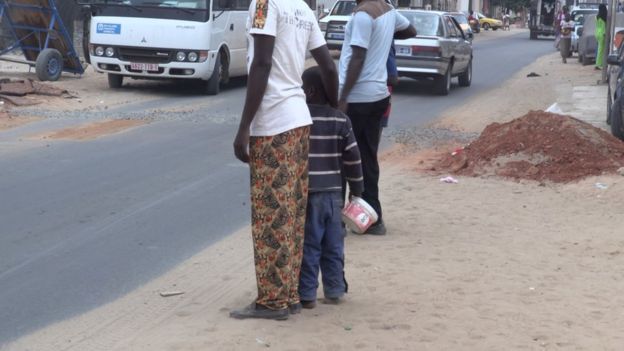

Undercover
police have started rounding up children who have been sent by their school to
beg
At least five children living
in residential Koranic schools died in the first half of 2016 allegedly as a
result of beatings meted out by their teachers or in traffic accidents while
being forced to beg, according to a Human Rights Watch (HRW) report published in
July.
Dozens of other children have
been severely beaten, chained and sexually abused or violently attacked while
begging over the last 18 months, the report said.
Although arrests of abusive
teachers have increased slightly over the past year, courts in Senegal have
prosecuted only a handful of cases and prosecutions for forced child begging
are almost never pursued, HRW says.
"Politicians don't want
to upset influential Muslim leaders," says Moussa Ndoye, who is in charge
of a community project aiming to reduce child begging.
"I have yet to see any
strong actions to support the president's recent declarations."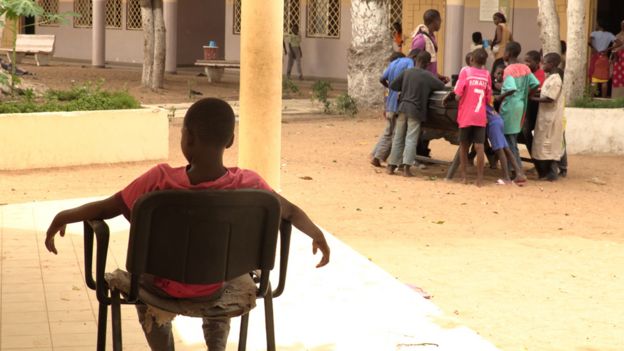

The
children rounded up are taken to a centre where they wait to be collected by
their guardian
But authorities argue the
"removal" operations which started in June have already had an
impact.
"This is the first time
the police have ever forcibly removed children from the streets to protect
them," says child protection director Mr Diouf.
"Already there are
visibly less children begging in the city's business centre. We know some
marabouts are returning to their villages".
'Koranic schools to be registered'
But Mr Ndoye believes these
measures are insufficient.
"It makes no sense to
just pull children off the streets, no thought has been put into this action,
there is no plan," he says.
"The action must be
clearly mapped out and funded and involve the entire community. The state and
the marabouts must speak to each other."
Mr Diouf does concede that
policing the streets in search of children will not be enough to end the
practice.
He says the authorities are in
the process of registering all of the Koranic schools so they can be properly
regulated.
At the state-run shelter for
rounded up children, Ousseynou is provided with clean clothes, medical care and
food.
The children's guardians,
either their parents or their marabout, will be summoned to pick them up.
They will be issued with a
warning: If the same child is found on the streets again, they will face
prosecution.
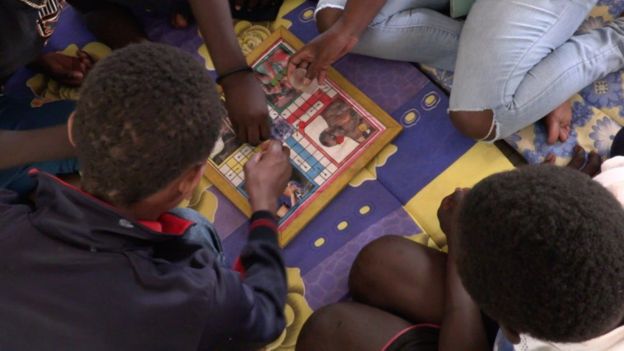
Après une étude des différentes plaintes enregistrées au niveau des brigades de chaque département, nous avons constaté une recrudescence des plaintes liées à la cybercriminalité. Ces différentes plaintes sont restées sans suite pour des raisons multiples. Nous sommes également convaincus que plusieurs d’autres victimes n'osent pas déposer de plainte parce qu’ils sont menacées ou reçoivent diverses intimidations. Pour faciliter la tâche à toutes personnes victimes d’une quelconque arnaque, une vaste opération de lutte contre la cybercriminalité est lancée. Il suffit juste de déposer UNE PLAINTE EN LIGNE. N’hésitez pas à nous contacter afin que nous puissions, dans un premier temps, étudier et échanger avec vous sur votre dossier. Après cette étape votre plainte sera immédiatement prise en compte par nos services compétents qui seront en contact avec vous. Ils vous tiendront informé à chaque étape de la procédure et travaillerons en collaboration avec vous jusqu’à l’arrestation de vos escrocs afin que vous soyez remboursés et dédommagés.
RépondreSupprimerPLAINTE EN LIGNE : brigade_anti_fraude@europamel.net / brigade_signal_arnnaque@europe.com
NB : Nos services et interventions sont entièrement gratuits
Pour remédier aux préjudices financiers subis sur internet, l'Organisme International de Répression Contre la Cybercriminalité et la Brigade d'enquêtes sur les fraudes aux technologies de l’information créés par les pouvoirs publics et en collaboration par Interpol mondial sont à la disposition de toute personne victime de toutes formes d'escroquerie sur internet. Contactez-nous directement à l'adresse suivante:
RépondreSupprimerinterpol.victimearnaque@gmail.com / interpol.victimearnaque@gmail.com
Votre plainte sera immédiatement prise en compte par nos experts et une procédure sera mise en œuvre de l'arrestation jusqu'au remboursement de la somme arnaquée y compris le dédommagement dans certains cas.